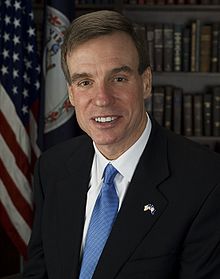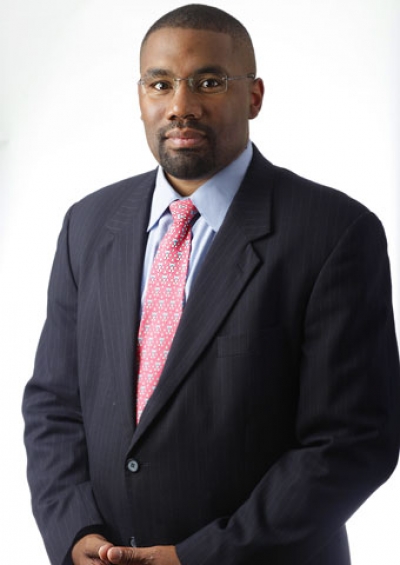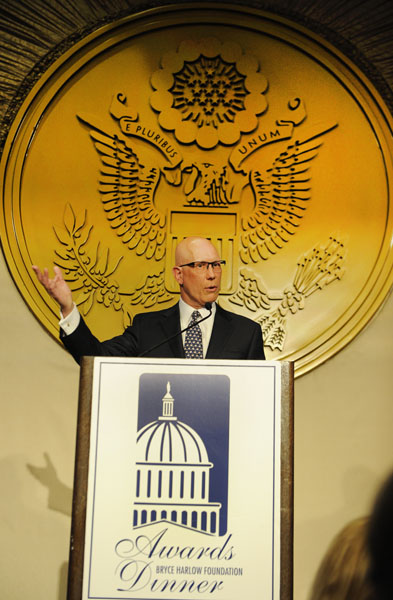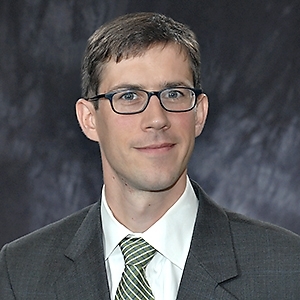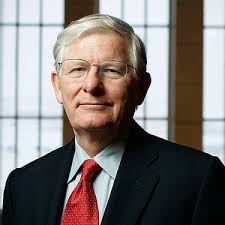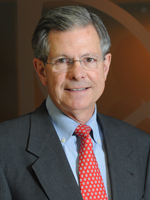 Today’s post comes from Charlie Black’s acceptance speech at the Bryce Harlow Foundation Awards Dinner.
Today’s post comes from Charlie Black’s acceptance speech at the Bryce Harlow Foundation Awards Dinner.
In a city where pride often trumps humility, our 2013 Bryce Harlow Foundation Awards Dinner honoree Charlie Black regards Bryce Harlow as the “greatest man ever to practice our profession.”
“Bryce Harlow proved that you don’t have to be an elected official to make a big difference in public policy or in the direction of the government,” he said. “Bryce spent the majority of his time mentoring and advising others as anonymously as he could. It was said of him that in a room this size, full of people, almost every one of them had received advice from Bryce Harlow and none of them knew it about the others.”
Mr. Black listed six characteristics that Bryce Harlow himself deemed to be invaluable to a lobbyist: Integrity, willingness to work hard, adaptability to change, humility and perspective, and understanding of the processes of government and the ability to assimilate details. Mr. Black specifically focused on humility, saying it is the hardest to achieve.
“It’s about your company, your industry, your client, the thousands of employees and potential employees and consumers that you represent,” he said. Understate your role and lift up your client; lift up your business.”
We were pleased to honor Mr. Black at our Bryce Harlow Foundation Awards Dinner because of his proven dedication to the advocacy industry.
